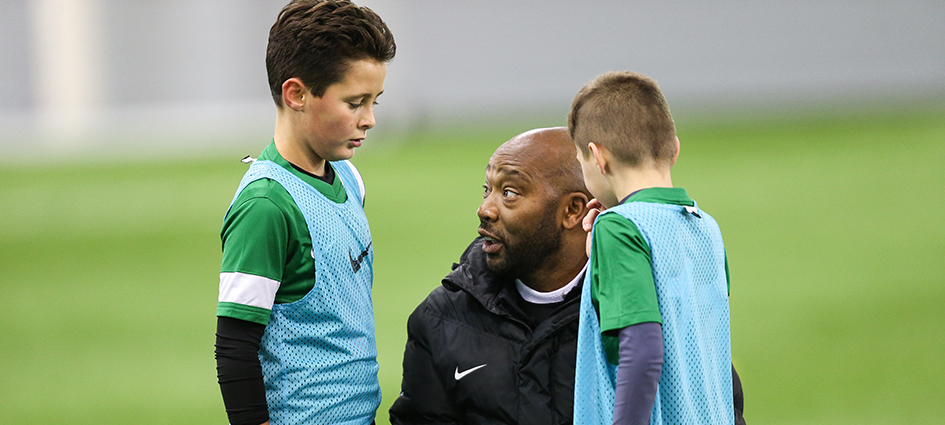
Top tips: building trust with your players
- Adam Furness
- 24 April 2019
FA county coach developer, Adam Furness, outlines the importance of developing trust in the coaching setting.
1. Trust and performance Players who are supported, valued and safe in their football environment will produce better performances. By acting as a trusted outlet to your players, you can help individuals to lighten their load and focus on the task in hand. This is also true for coaches and colleagues.
2. A safe coaching environmentOne definition of trust is ‘the belief that someone is good, honest and will not harm you; something or someone that is safe and reliable’ – these are values that coaches should continually work on in order to develop a strong relationship with players.
Never be the source of gossip or distrust - instead help, support and advise
3. Sliding doors Recognise moments when trust can be built or lost. Promising equal playing time at the start of the season and then breaking that promise is an example of where trust can be lost. Consider these as ‘sliding door’ moments, with the opportunity to build trust at one side and the opportunity to betray at the other. Recognise and pick carefully.
4. Trust is built through small moments Trust is the product of repeated behaviour. Trust will only be built and recognised when you repeatedly do what you say you will. As a coach don’t over promise and don’t under deliver. Be honest, realistic and stick to it. You earn trust when you're reliable and consistent.
5. Don’t be a source of gossip If players speak with you about individual matters it's important to hold that information in confidence. Never be the source of gossip or distrust - instead help, support and advise. If it’s a safeguarding issue you must, however, act on this information appropriately.

6. Accountability Owning up, admitting a mistake and being genuinely sorry for it, is an important principle for both coaches and players. Likewise, it’s crucial that when others make mistakes, you respect their sincerity and move on without holding a grudge. Trust is built when we always assume that the actions of others are with the best intentions.
7. Ask for help As a coach it’s important to ask for help. Through modelling positive behaviours and showing that you don’t have all the answers you will help develop trust with the group. This approach gives the players permission to act in the same way. In a supportive culture you should hear “I need help” as often as “how can I help?”.
Trust is developed when you choose courage over comfort and doing what is right rather than what is fast or easy
8. Integrity Working with young players involves lots of decisions on a regular basis. Many of these decisions can be challenging such as choosing teams, reminding the group of agreed boundaries and dealing with disappointment. Trust is developed when you choose courage over comfort and doing what is right rather than what is fast or easy.
9. Trust and productivity When trust is high, productivity increases. In a safe and trusting environment, problems and issues are raised and dealt with sooner, quicker and in a more productive way. If the problem is dealt with swiftly everyone can focus on playing football.


